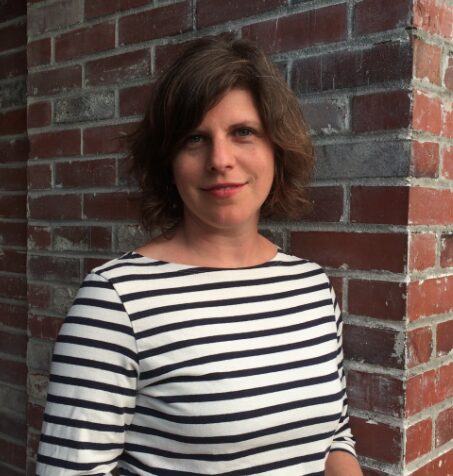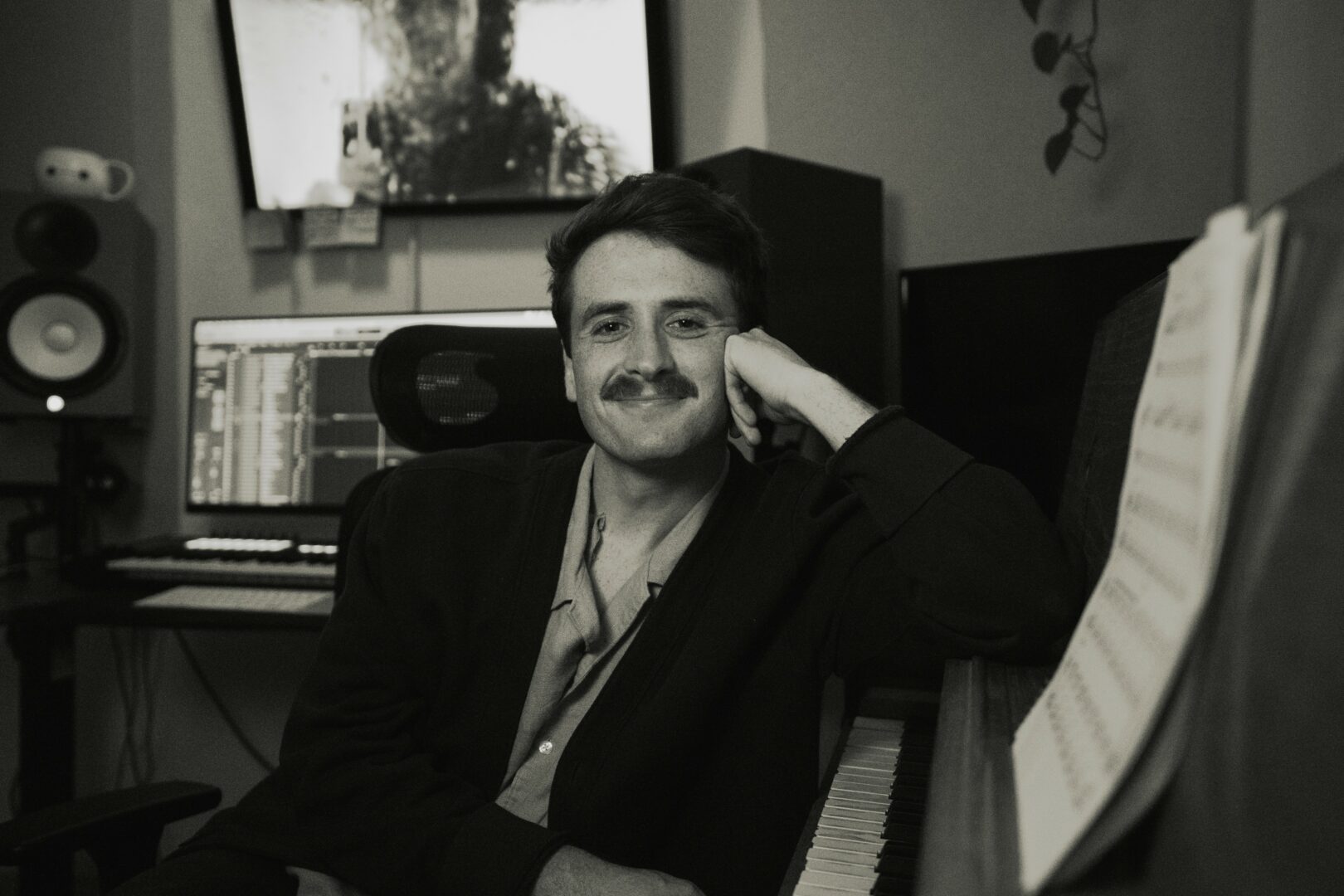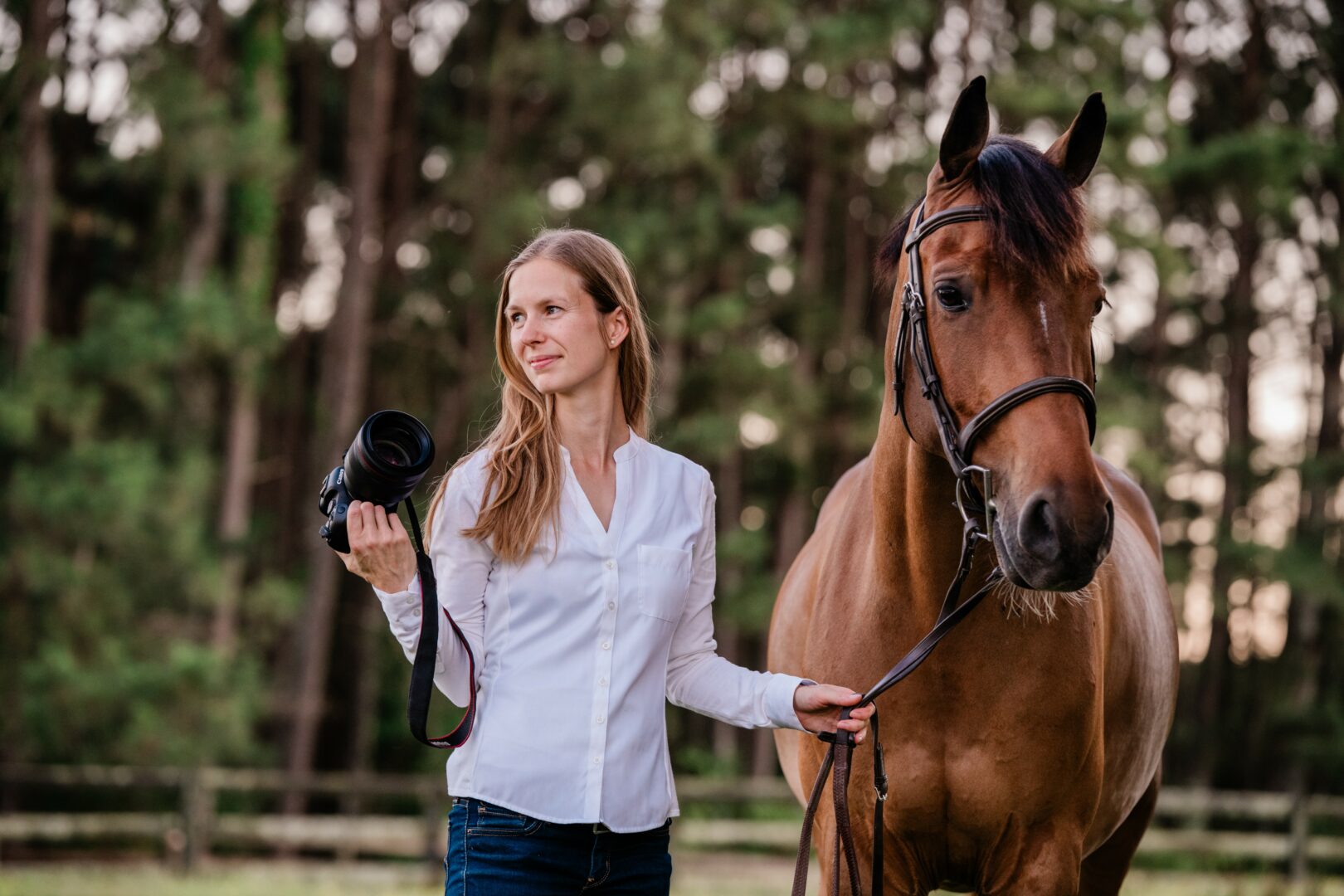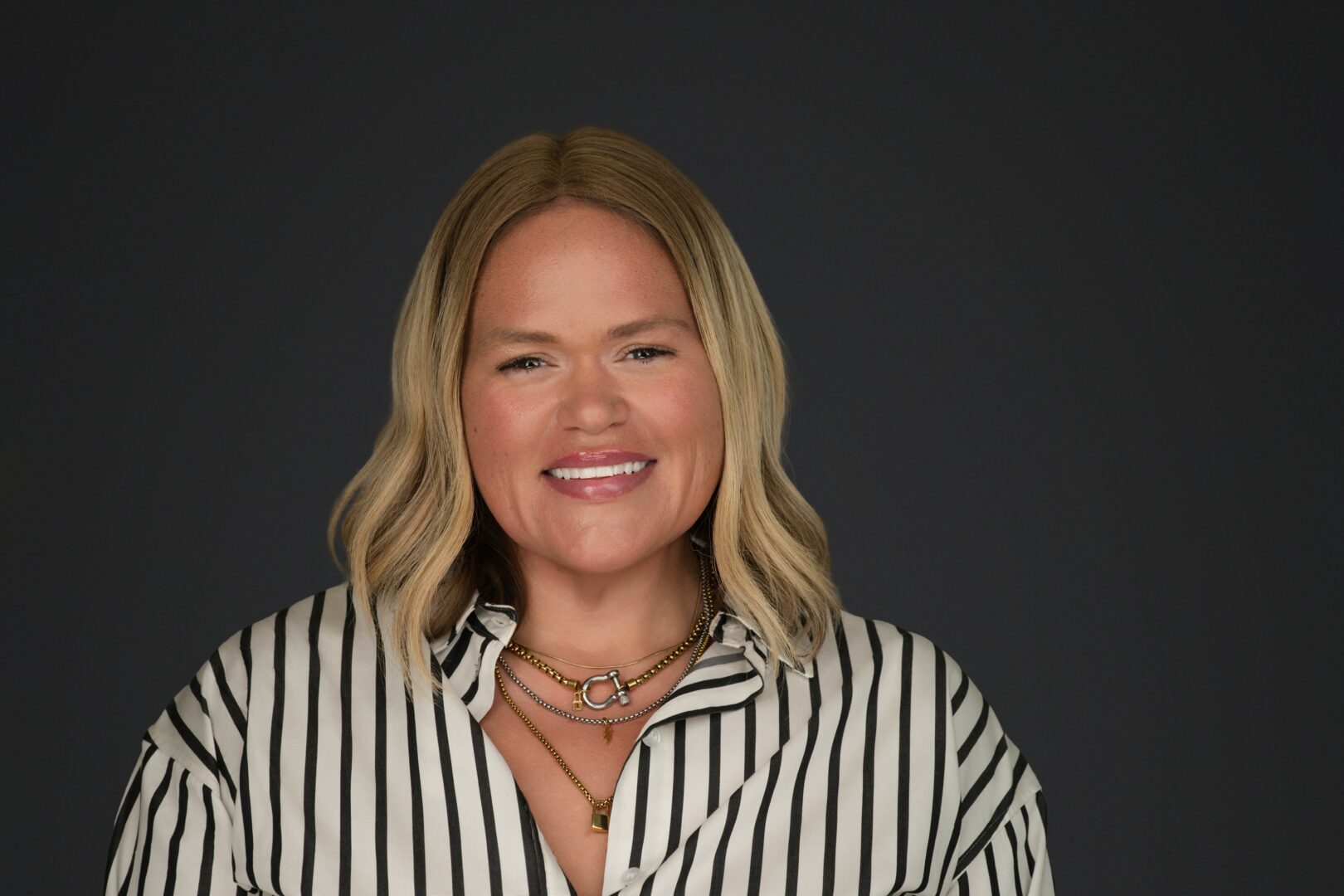We caught up with the brilliant and insightful Liz Asch Greenhill a few weeks ago and have shared our conversation below.
Liz , we are so appreciative of you taking the time to open up about the extremely important, albeit personal, topic of mental health. Can you talk to us about your journey and how you were able to overcome the challenges related to mental issues? For readers, please note this is not medical advice, we are not doctors, you should always consult professionals for advice and that this is merely one person sharing their story and experience.
I struggled with debilitating anxiety and depression in my teens and young adulthood. A friend recommended an EMDR therapist, for which I am so grateful, as it changed my life—in multiple ways. This was in New York City in 2001, and I was in my mid-twenties. EMDR helped me identify my emotions with acceptance and understanding. It helped me change the negative self-beliefs that informed my inner dialogue. It helped me lower the dosage on the psycho-pharmeceuticals I was taking such that my creativity and passion returned. It also taught me that some of my mental health challenges were worsened by my outlook perspective—and that these influences were changeable, and that I had agency and could alter my frame of mind. It gave me the resources, tools, and practice to do so. It showed me that both language and my own imagination were tools I was born with, which could dramatically affect sensations in my body and my mind which could help me change behavior patterns. I learned to stop speaking to myself in such a critical manner and I learned to self-regulate: to use my language and imagination to guide myself toward sensations of groundedness and calm. I had no idea that years later, this would become my career, in more ways than one.
After the horrific events of 9/11, my mental health, which had started to improve, took a dramatic turn for the worse. I was terrified that the city would be struck again and that this time I would not survive. I obsessively thought of this and imagined it constantly, causing sweating and nervous tremors, elevated blood pressure, tension and headaches. EMDR therapy helped me come to understand that these bodily reactions were caused by the stories I was inventing. Coming back to the present, noticing I was safe in the moment, practicing appreciation for that safety, and attuning my senses to the world around me, rather than my vivid imagination are all tools I still use to this day.
The dramatic improvement in my mental health led me on a quest to learn about other natural, historical, and indigenous methods of psychological support. When I found out that Chinese Medicine held no stigma on mental illness (that disordered energy of the mind, emotions, and soul are just as valid and changeable as disordered energy in the body) I decided to enroll in graduate school to study it, and at this point, I have been an acupuncturist for over sixteen years. My job is to help people feel whole, accepted, and understood just as they are, and to help people learn to unravel the tension and congestion that clutters their mind, emotions, soul, and body. It’s very empowering to learn that we can do a lot of this ourselves, with guidance and practice. I have worked in integrative clinics, community health, and on the college campus as an acupuncturist who uses a minimally invasive technique that triggers the body’s healing mechanisms.
Last year, when facilitated psilocybin therapy became legal here in Oregon, I studied and got my license to practice this method of healing on the soul or spirit level. We live in a society inundated with soul sickness. So many people struggle with a disordered spirit, the effects of trauma, poverty, violence, war, and grief. We are desperate for medicines and methods that reach us on this most etheric and profound level. It’s an honor to help people mend their soul. When we repair and restore the soul, we can feel more whole, fulfilled, and present.
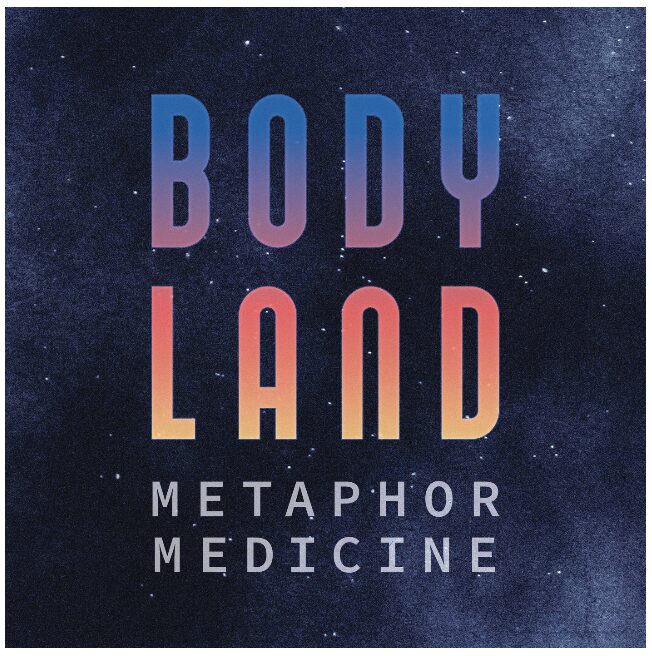
Thanks, so before we move on maybe you can share a bit more about yourself?
In 2019 I started a podcast to help listeners learn to use language and the powers of their imagination as a way to self-regulate and feel better in their minds and bodies. Body Land Metaphor Medicine is a free archive of over 50 guided visualizations that use principles of Chinese Medicine, somatic methods for the treatment of trauma, and imagery informed by Surrealist art. These are active meditations that engage us in the act of ‘qi cultivation,’ willingly moving energy from where it is stuck using the felt-sense and the mind’s eye. For those who have an active imagination, these exercises are a powerful way to experience a mini-journey of self-discovery. Listen while seated or lying down with closed eyes and see how you feel afterwards. Many people describe the sensation as acupuncture without the needles, and report feeling dazed, calmed, present, clear-headed, grounded, and refreshed afterwards. These audio experiences help the listened practice those methods of self-acceptance and embodiment that I first learned from EMDR over twenty years ago. They are still the most valuable teachings I have ever learned, and it helps me feel a sense of purpose to share them in an interesting and creative way. I call my method somatic storytelling, or embodied surrealism. If you try it, please let me know how it felt to you. My goal is to expand the accessibility of this method by releasing episodes in languages other than English. Stay tuned for Season Five en Español.
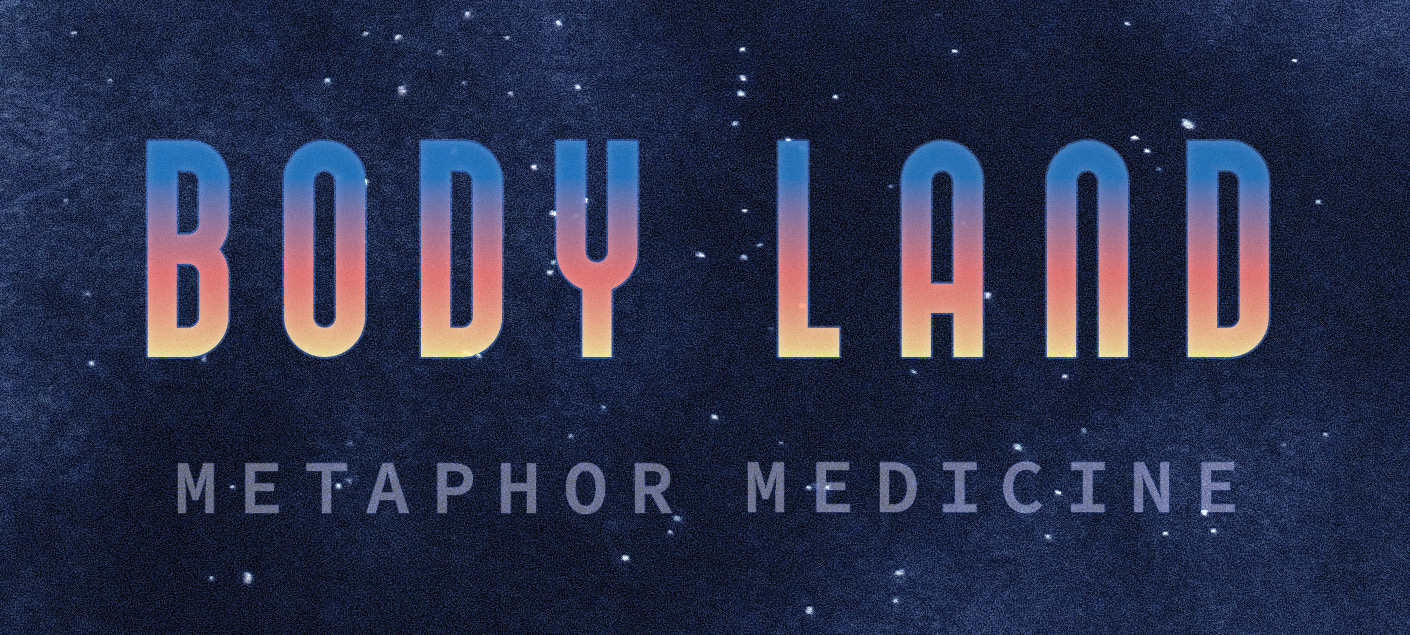
If you had to pick three qualities that are most important to develop, which three would you say matter most?
I went on to study somatic therapeutics for the treatment of trauma with a variety of instructors and methods and have many takeaways to share. One thing I learned is that to heal and/or thrive, humans need safety, a sense of belonging, and dignity (intact or restored). We can make a concerted effort to provide others with these three essentials. And we also have a moral responsibility and opportunity to provide our selves with those essentials. One of the ways we can improve our mental health is to change the way our minds jump into the mode of complaining and criticizing.
When you catch yourself speaking harshly to yourself, write it down. Make a column of all the phrases that go through your head. On each line, draw and arrow to a column on the right. Write the opposite of each of those phrases. For example if you catch yourself saying “I’m a terrible person,” draw and arrow and write next to it, “I’m a wonderful person.” See how it feels in your body to repeat that to yourself. Where does it land and what does it feel like? Now repeat the initial phrase, the negative one. What effect does that have on you? Notice where it lands in your body and how you feel afterwards. Remember that no one is in control of your inner dialogue but you. You have the power to feed yourself the better option. Make a practice of changing this inner dialogue and repeating the lines in the second column.
Similarly, when we start to complain, that’s an indication of a need not being met, and a negative lens getting stuck over our perspective. There are reflective methods that help us uncover what it is that we desire or want beneath the dissatisfaction. We can use language to process and come to a place of neutrality where we better understand ourselves and can see things more objectively. From that place it’s a short shift to put on a lens of appreciation instead of disdain. When we are wearing that lens, it improves our outlook, relationships with others, and our sense of hope. With an intact sense of hope, we are better able to make a difference in our communities and actually help make the changes we so desire to see in the world.
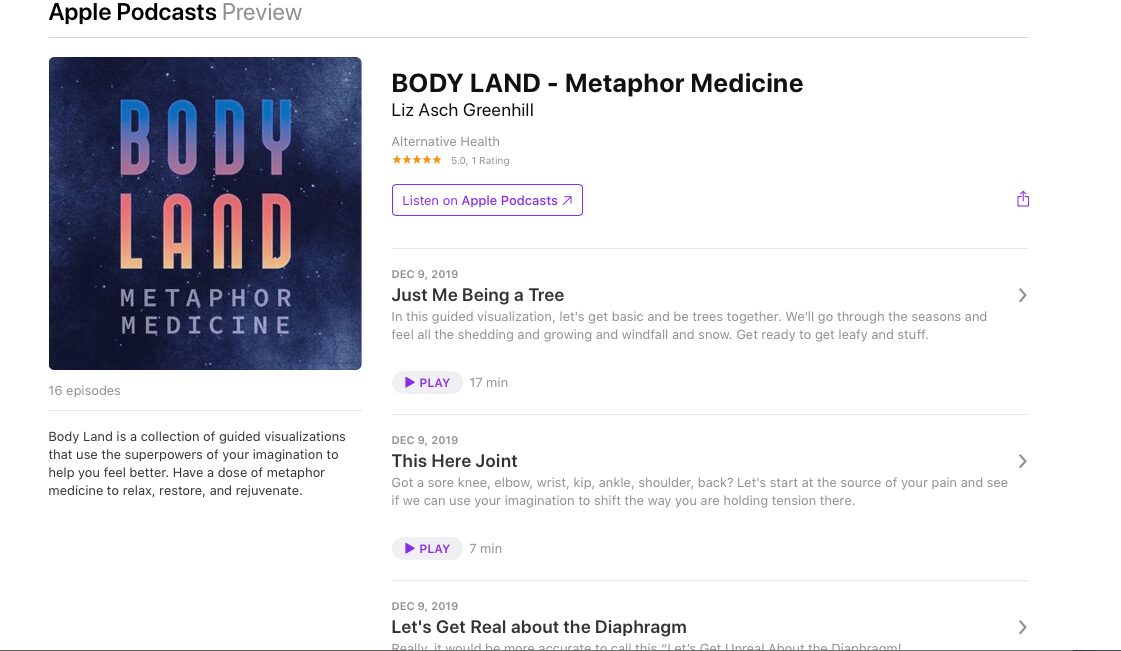
Okay, so before we go we always love to ask if you are looking for folks to partner or collaborate with?
I’d love to work with people in tech who are interested in the mind/body connection to develop innovations in Virtual Reality to help people engage their imaginations with embodiment methods to amplify the guided visualization into a fuller experience beyond listening. I think there’s real potential here to help people with addiction, chronic illness and inflammatory and auto-immune disorders and I’d love to share ideas and get involved with that creative team.
Contact Info:
- Website: https://www.nightskyacupuncture.com
- Instagram: metaphor_Rx
- Linkedin: Liz Asch Greenhill
- Other: https://open.spotify.com/show/3U299rQp2Id0g4SpOCEyTu
https://music.amazon.co.uk/podcasts/f4e803b3-5c5c-4fc7-b6d4-3c72cf747654/body-land—metaphor-medicine
https://podcasts.apple.com/us/podcast/body-land-metaphor-medicine/id1490808299
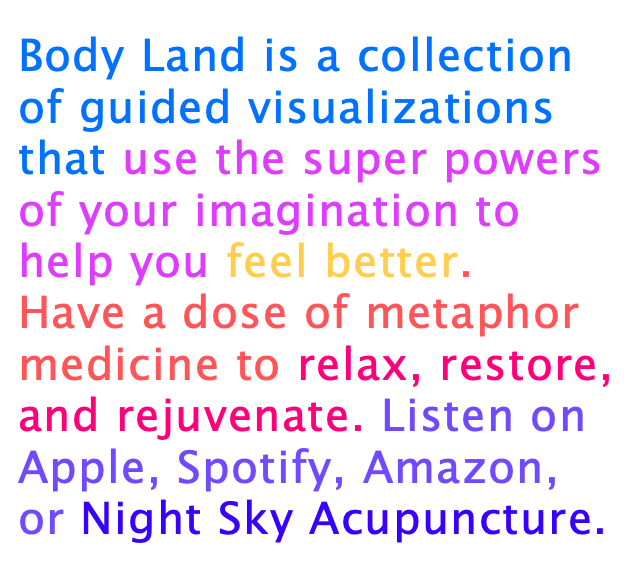
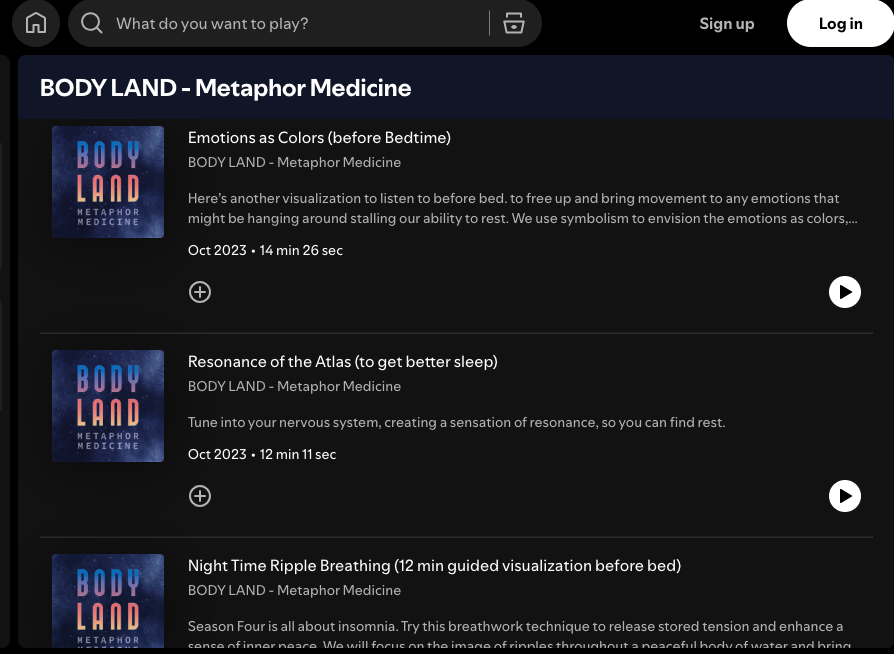
so if you or someone you know deserves recognition please let us know here.

